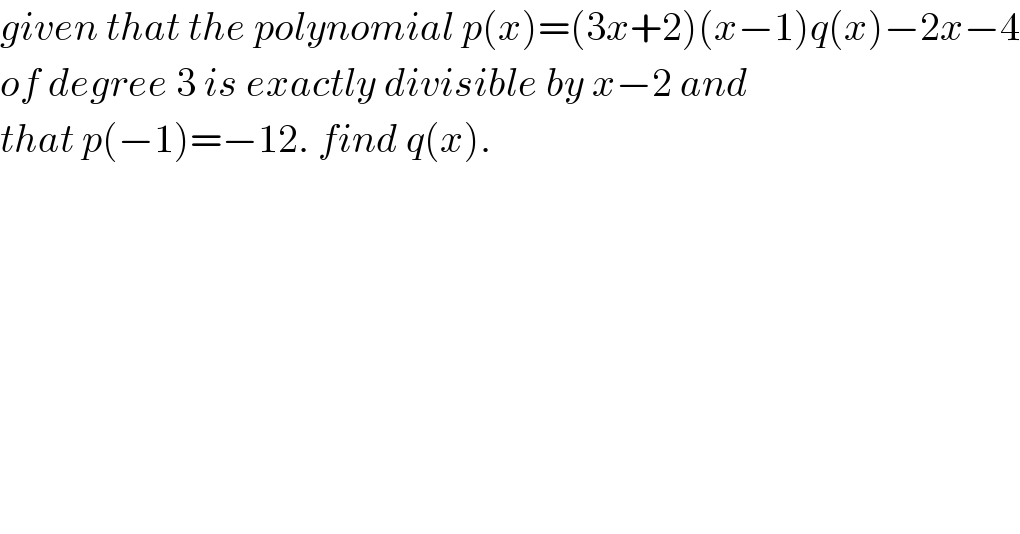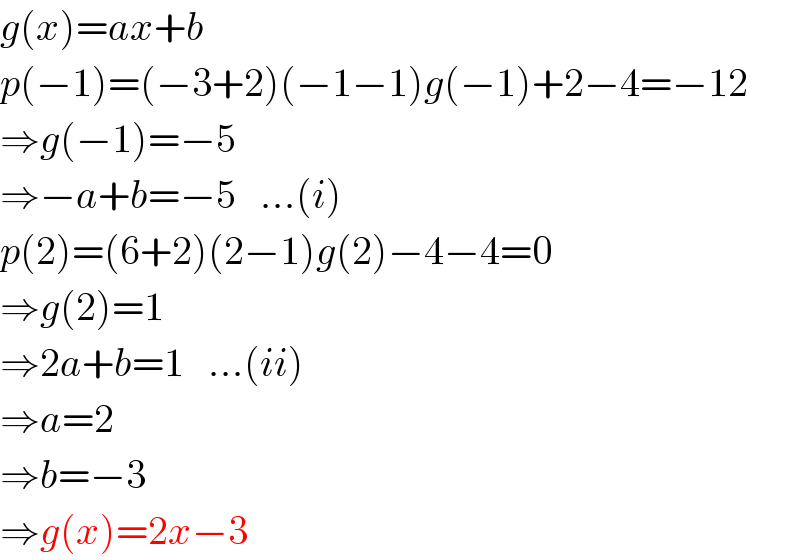
Question Number 97606 by hardylanes last updated on 08/Jun/20

$${given}\:{that}\:{the}\:{polynomial}\:{p}\left({x}\right)=\left(\mathrm{3}{x}+\mathrm{2}\right)\left({x}−\mathrm{1}\right){q}\left({x}\right)−\mathrm{2}{x}−\mathrm{4} \\ $$$${of}\:{degree}\:\mathrm{3}\:{is}\:{exactly}\:{divisible}\:{by}\:{x}−\mathrm{2}\:{and}\: \\ $$$${that}\:{p}\left(−\mathrm{1}\right)=−\mathrm{12}.\:{find}\:{q}\left({x}\right). \\ $$
Answered by mr W last updated on 08/Jun/20

$${g}\left({x}\right)={ax}+{b} \\ $$$${p}\left(−\mathrm{1}\right)=\left(−\mathrm{3}+\mathrm{2}\right)\left(−\mathrm{1}−\mathrm{1}\right){g}\left(−\mathrm{1}\right)+\mathrm{2}−\mathrm{4}=−\mathrm{12} \\ $$$$\Rightarrow{g}\left(−\mathrm{1}\right)=−\mathrm{5} \\ $$$$\Rightarrow−{a}+{b}=−\mathrm{5}\:\:\:...\left({i}\right) \\ $$$${p}\left(\mathrm{2}\right)=\left(\mathrm{6}+\mathrm{2}\right)\left(\mathrm{2}−\mathrm{1}\right){g}\left(\mathrm{2}\right)−\mathrm{4}−\mathrm{4}=\mathrm{0} \\ $$$$\Rightarrow{g}\left(\mathrm{2}\right)=\mathrm{1} \\ $$$$\Rightarrow\mathrm{2}{a}+{b}=\mathrm{1}\:\:\:...\left({ii}\right) \\ $$$$\Rightarrow{a}=\mathrm{2} \\ $$$$\Rightarrow{b}=−\mathrm{3} \\ $$$$\Rightarrow{g}\left({x}\right)=\mathrm{2}{x}−\mathrm{3} \\ $$
